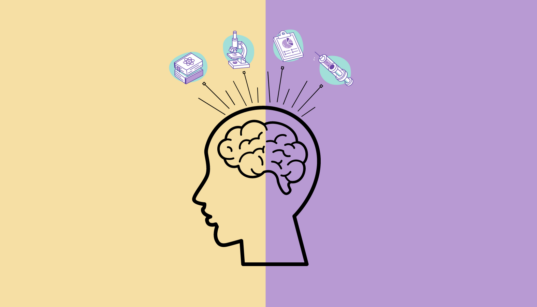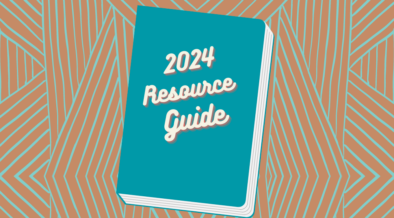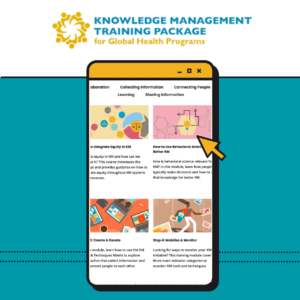Knowledge Management
Knowledge Management
Knowledge management is the process of collecting and curating knowledge and connecting people to it so they can act effectively. Whether they knew it or not, human beings have always practiced knowledge management. From cave paintings to cantos to creating vlogs, we’ve always sought to share knowledge and pioneer new ways of doing so. Knowledge management is at the heart of global health and development work. When health care providers refer to the latest guidelines on how to treat a disease, they are using knowledge management. When a program manager rolls out a new mobile application to facilitate communication between community health workers and their supervisors, they are all using knowledge management. Equitable knowledge management can improve coordination and enhance meaningful learning, collaboration, and application. Most knowledge is created, captured, and shared through human interaction—making it essentially a social act. People must, therefore, be at the core of any knowledge management approach by helping cultivate an environment that encourages the exchange of knowledge and the use of knowledge management systems. Successful knowledge management practices enable global health practitioners to share and apply valuable know-how in their work. The results are a stronger health workforce, better health services, and longer, healthier lives.
Explore Posts
Resources Related to Knowledge Management
Clicking on some of these links will take you off of this webpage to a new website.






















